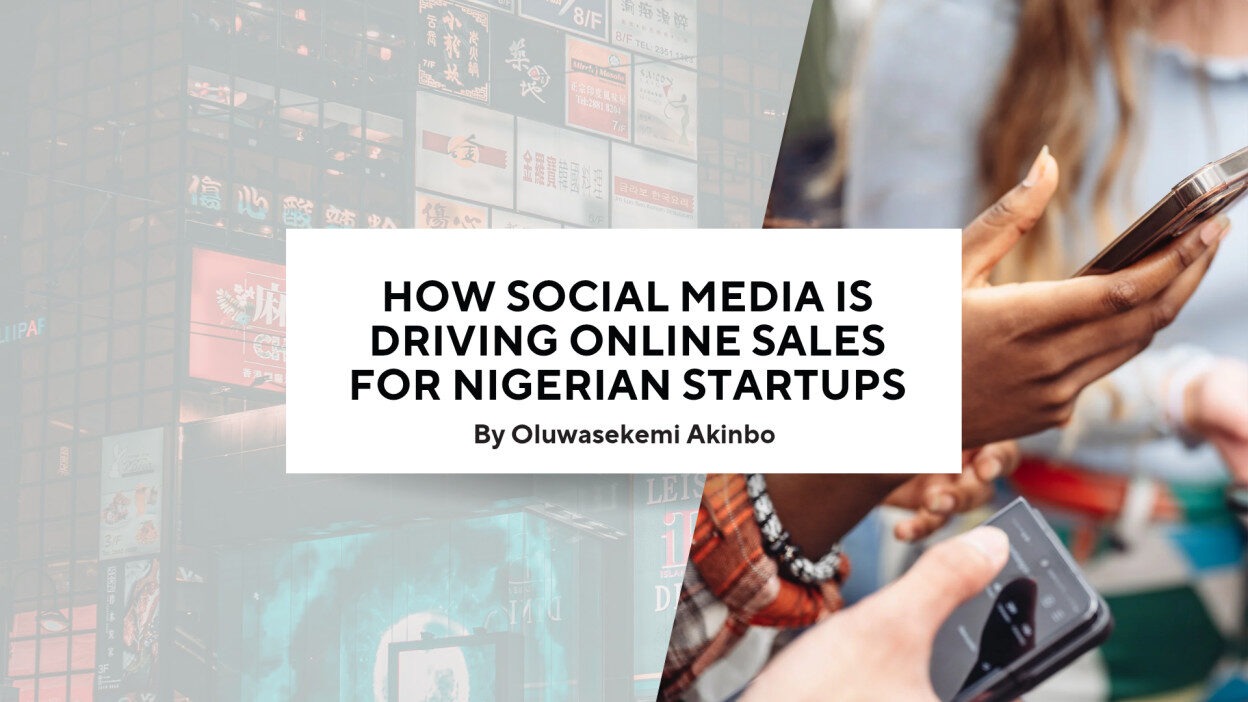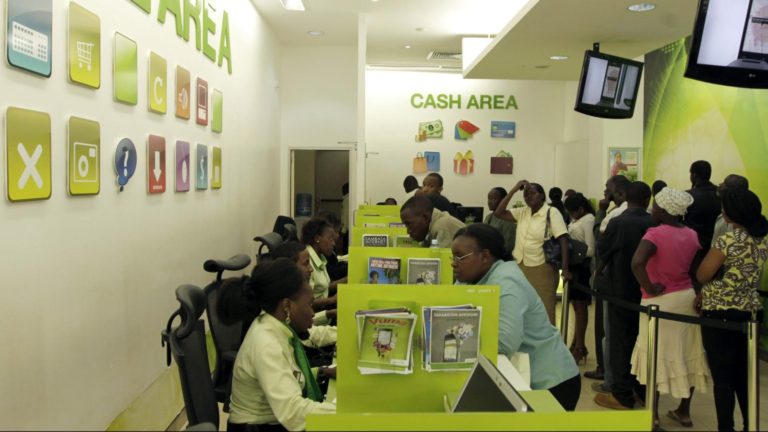How Social Media is Driving Online Sales for Nigerian Startups

Social media of today goes beyond a space where people post their favourite pictures, comment on a few family vacations, and leave—social media of today is now a money-making platform.
Research indicated that up to 56% of micro, small, and medium enterprises (MSMEs) in Nigeria make sales exclusively through social media, while another 19% sell using social media and other e-commerce platforms (GSMA 2023 – E-commerce in Africa: Unleashing the opportunity for MSMEs).
Social media is the new Balogun market. It’s the new Wuse market. It’s the new Times Square. It’s a space where vendors can connect with millions of potential customers, advertising their goods and/or services to a global audience for a reasonable amount; nothing close to the cost of traditional advertisements.
In this article, I’ll explore how social media is converting small brands to global names by driving visibility, reliability and consistent sales.
Why Social Media for Sales?
Digital marketing is taking the world by storm, and social media is leading the charge. But why Social media? Why are businesses drawn into using social media as a tool for marketing? Let’s explore some of the advantages that social media brings to marketing.
Millions of Potential Customers 
Source: Payments & Commerce Market Intelligence
As of January 2023, Nigeria had 122.5 million internet users, representing an internet penetration rate of 55.4% of the total population. ?In the same period, there were 31.6 million active social media users in Nigeria, equating to 14.3% of the total population. (DataReportal, 2023 – Digital 2023: Nigeria)
The internet and social media penetration rate in Nigeria indicates how much of the nation’s population spend time with their phones, on the internet, and most often, on social media. It would be unwise for businesses to ignore these numbers and focus on physical marketing and sales only. There are over 100 million people on the internet every day, and over 30 million of this number are on social media. If a business can reach at least 10% of the 30 million, imagine the turnover for their brand. Social media gives brands visibility. It makes them well-known among potential customers. A shop hiding in Ikota will not have as much visibility as a brand that uses Facebook or Instagram to pool visibility. In summary, social media sets businesses on a global stage, giving them millions of users to convert to customers.
Easy Tools to Thrive
Social media has made it easy for businesses to thrive. Platforms like Instagram, Facebook, TikTok and YouTube provide a variety of tools and features that enable businesses to advertise and promote their goods or services effectively. Some of these tools include:
- Instagram and Facebook ads on the feed, reels and stories
- Instagram and Facebook shops
- “Buy now”, “Shop now”, “Learn More” and other CTA buttons
- Facebook Ads Manager
- Facebook marketplace
- TikTok Ads
- YouTube Ads
These tools, and more, are beyond what one can get with traditional marketing. No wonder Meta Business Suite (The Facebook ads manager) recorded over 20 million Facebook users in Nigeria in early 2023 (DataReportal, 2023 – Digital 2023: Nigeria).
Social media marketing is also more cost-effective than traditional marketing. You’re spending a lot less, yet getting a lot more visibility. This cost-effectiveness is highly suitable for startups, as they wouldn’t have to worry about spending all their profit or startup budget on marketing.
How Nigerian Startups Are Harnessing the Power of Social Media
Nigerian startups have keyed into the power of social media to enhance their brand visibility, engage with customers, and drive sales. Some of the most-commonly employed social media marketing strategies among startups in Nigeria include:?
Social Media Influencer Marketing
Influencer marketing is one of the fastest ways to drive engagement for startups, as it allows startups to tap into the influencer’s established audiences.
Social media influencers have increased in Nigeria between 2020 and 2023. These individuals dedicate their pages to advertising the products and services of various brands. It’s like advertising on TV, but this time on social media.
Instagram brand influencer, Naija Brand Chick, for instance, dedicates her time to expanding the online presence of SMEs and even big brands. Leveraging her wide audience reach, she helps brands grow their visibility and engagement. SeeAbuja is another popular social media brand influencer in Nigeria. With over 200,000 followers on Instagram, the page is dedicated to spotlighting new locations in Nigeria, such as restaurants, boutiques, salons, etc.
Content Marketing
Content, they say, is king, and Nigerian startups make the most of the kingdom.
Leveraging the social media space, Nigerian startups are fond of building reliability and trust among their target audience by putting out consistent, informative content related to what they offer.
For instance, a coffee brand might choose to post content on when best to take coffee, how best to take coffee, the history of coffee, etc. They may even post engaging content with their customers and staff, such as behind-the-scenes clips, testimonials, how customers take their coffee, etc.
Creative and informative content positions startups as reliable and trustworthy in their industry. It gives potential customers the impression that the startup is good at what they do, that they nurture a friendly work environment, and have customers on their tail. Some brands even key into global conversations, like showcasing eco-friendly products.
Social media is a free canvas. And anyone can paint on it. Your chances of drawing attention just depends on how well you paint.
Social Media Ads
Since startups are in the early stages of building their audience and customer base, their content often struggles to stand out in the vast sea of online posts. This is where social media advertising becomes essential.
Social media ads—such as Facebook Ads, YouTube Ads, TikTok Ads, and Instagram Ads—provide startups with the visibility they need by strategically placing their content on their target audience’s feed. These platforms ensure that ads reach the brand’s target customers, by using AI-based algorithms to read demographics, interests, and online behaviour of users.
Shopify estimates that businesses are expected to spend $207 billion globally in 2023 on social media ads. Facebook is particularly leading this wave, accounting for about 60% of social media advertising revenue globally (Shopify: 45+ Social Media Marketing Statistics for 2023).
With social media ads, startups can cut through the limitations of organic marketing. They can drive engagement faster, and ultimately increase their chances of attracting potential customers.
Conclusion
Startups in Nigeria operate in a competitive environment. Moreso, they often face challenges such as limited marketing budgets, limited business knowledge, poor working conditions, poor customer reach, etc.
Social media has evolved into an indispensable tool for solving the majority of the challenges associated with running a startup. It offers an almost-free opportunity for startups to reach a broad audience, build trust and reliability, and drive online sales.
Platforms like Facebook, Instagram, TikTok, Twitter (X), and LinkedIn provide cost-effective solutions that enable startups to connect with potential customers, showcase their products, and even learn from brands that have been in the field for long.?
As the digital landscape in Nigeria continues to evolve, startups that embrace social media marketing will remain ahead of the curve. Social media is no longer just a platform—it’s now a tool. Thus leveraging social media the difference between a struggling startup and a thriving one.







